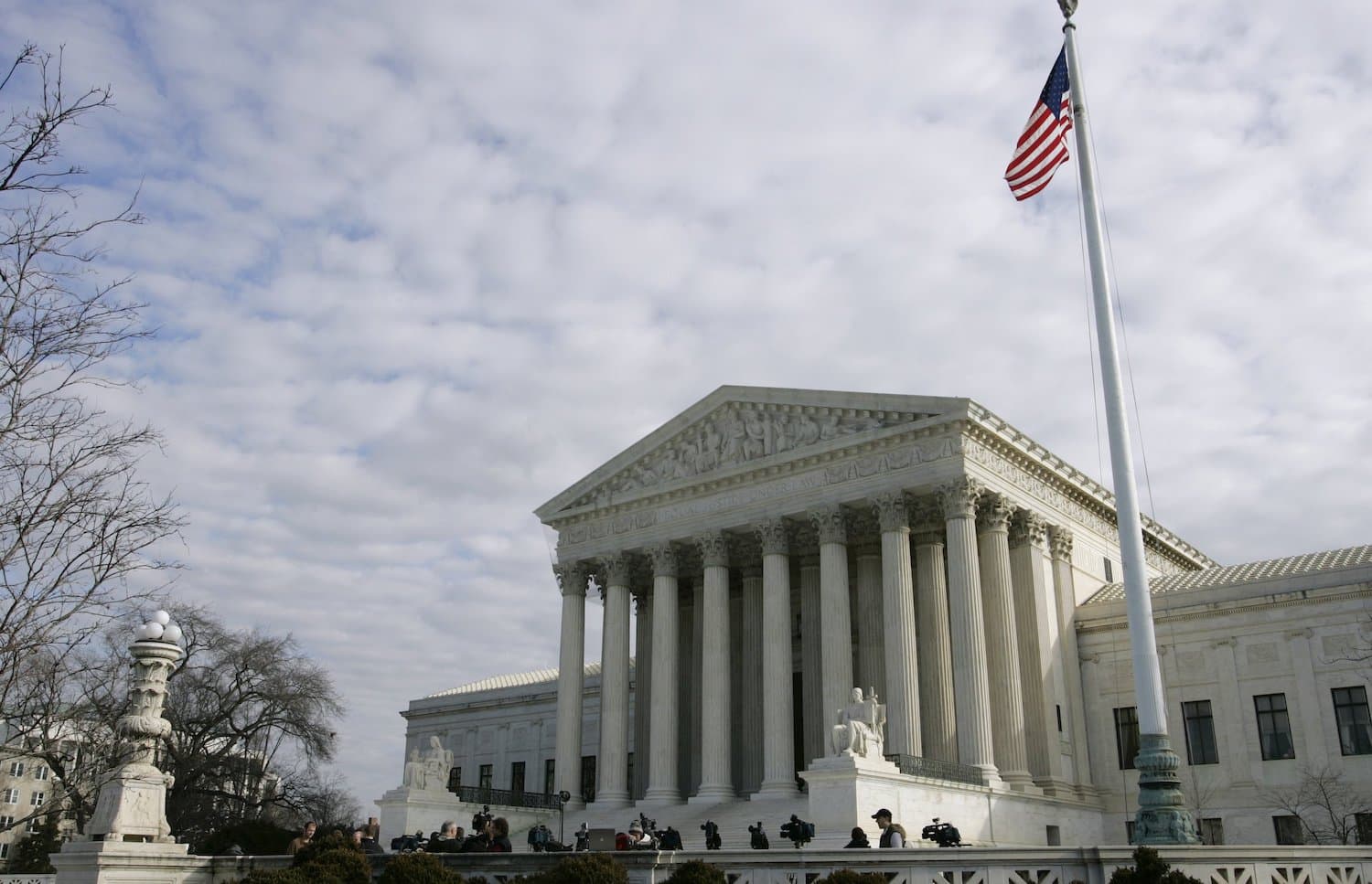On June 29, the U.S. Supreme Court issued its unanimous decision in the case of Groff v. DeJoy, interpreting the duty of employers to accommodate employees’ religious beliefs as spelled out by the Civil Rights Act of 1964. Consistent with its general approach in recent years, the court reiterated a strong presumption that religious belief and practice must be accommodated in the employment context.
In this victory for religious liberty, the court rejected a weak and vague standard of review, replacing it with a vigorous and clear rule determining the extent to which employees’ religious liberty interests must be accommodated by their employers. In short, the court held that an employer may deny an accommodation only if it can show that the accommodation “would result in substantial increased costs in relation to the conduct of its particular business.”
In addition to the legal consequences, the Groff case implicates two discrete but related aspects of Christian faith and practice — the nature of work and worship, both of which are outside the court’s competence and authority, but upon which the case has significant impact.
The background
Gerald Groff, an evangelical Christian, was a mail carrier for the U.S. Postal Service in rural Pennsylvania. Groff believes that a Christian may not perform nonessential work on Sunday. This belief had not historically caused any conflict because USPS does not deliver regular mail on Sundays. That changed in 2013, however, when USPS contracted with Amazon to make Sunday package deliveries, essentially as a private carrier for hire. Groff informed his employer that he could not deliver Amazon packages (or otherwise work on Sundays) because that would violate his religious belief. Title VII of the Civil Rights Act of 1964 prevents employers from firing employees for practicing their religion, unless the religious practice of the employee cannot be reasonably accommodated by the employer.
Initially, the post office attempted to accommodate Groff’s belief by allowing him to trade his Sunday shifts with other carriers for additional weekday shifts. But in 2016, the postmaster of his office told Groff that he would have to work Sundays during the peak Christmas delivery season, from mid-November through January. In response, Groff was able to transfer to a smaller station that did not yet deliver packages on Sundays. But that changed shortly after he began, and the postmaster started scheduling him to work on Sundays. Groff refused and offered to trade Sundays for extra weekday shifts. But because there were not enough carriers to make this work, the postmaster continued to schedule Groff to work on Sundays. When he refused, he was progressively disciplined until he was forced to resign in January 2019. He then sued the USPS for violating Title VII. When the case reached the Supreme Court, Groff asked the court to change the test for determining when an employer may refuse to accommodate the religious belief of its employees — the standard under which Groff lost in the appellate court.
What the court ruled
Title VII of the Civil Rights Act requires an employer to make accommodations for “all aspects of religious observance and practice, as well as belief, unless an employer demonstrates that he is unable to reasonably accommodate [the employee] without undue hardship on the conduct of an employer’s business.” Like many areas of the law, the vague standard of “undue hardship” is difficult to define and even harder to implement. The Supreme Court attempted to do both in the 1977 case of Trans World Airlines v. Hardison, the precedent under which Groff lost in the 3rd Circuit. Larry Hardison was a member of the Worldwide Church of God, which forbids working on Saturdays. Because his position was critical to airline operations, TWA claimed, it could not accommodate Hardison’s religious belief without paying premium wages to his replacement. Thus, it continued to schedule him to work on Saturdays. When Hardison was fired from his job for refusing, he sued TWA. Ruling against Hardison, the U.S. Supreme Court determined that anything “more than a de minimis cost” to the employer was sufficient to meet Title VII’s “undue hardship” exception for accommodating an employee’s religious belief and practice.
This is the standard that the Supreme Court has now rejected in the Groff case. Writing for a unanimous court, Associate Justice Samuel Alito declared, “We hold that showing ‘more than a de minimis cost’ … does not suffice to establish ‘undue hardship’ under Title VII.” Alito explained that for a hardship to be “undue,” the “burden, privation, or adversity must rise to an ‘excessive’ or ‘unjustifiable’ level.” Thus, to justify the denial of an accommodation, “an employer must show that the burden of granting an accommodation would result in substantial increased costs in relation to the conduct of a particular business.”
In applying the new test, Alito continued, courts must take “into account all relevant factors in the case at hand, including the particular accommodations at issue and their practical impact in light of the nature, size and operating cost of [an] employer.” Thus, the court vacated the Court of Appeals’ decision against Gerald Groff and remanded the case for review using the newly articulated standard and guidance. That does not necessarily mean that Groff will win his case against the USPS. But the higher and more rigorous standard very significantly raises his chances.
The nature of work
As I noted above, the Groff case is about more than the legal protections afforded religious believers under Title VII of the 1964 Civil Rights Act, because it implicates two important moral considerations: the nature and purpose of work, and worship as a species of the virtue of justice.
Human labor may sometimes (or even often) be fulfilling in itself. Some jobs or careers are highly enjoyable even apart from any remuneration derived from them. Generally speaking, however, even pleasurable work serves purposes beyond itself: feeding a family, educating children, caring for the poor, and providing shelter and minimum standards of safety and comfort. Thus, even when it is enjoyable, work is never an end in itself. Rather, work is for the purpose of human flourishing, the achievement of which gives meaning and dignity to labor. Put simply (and with some qualifications), the purpose of work is not to work. Rather, its purpose is something higher.
Leisure is among those higher goods for which work is a means. And for the Christian, the heart of leisure is worship. This is very strongly rooted in the Catholic Christian understanding that worship is a species of the virtue of justice. Justice is understood as giving to another his due. Of course, obedience to God is something that is due to him. Thus, in one sense, the liberty to take a Sabbath rest is simply obedience to the Third Commandment. But the virtue of worship goes beyond mere obedience to a command. Rather, it is the practice of reverence and awe that is not merely owed but inspired by God, our creator and redeemer. Worship is due to God alone, because God alone is worthy of worship. Work contributes to worship by providing the leisure necessary to practice it.
These things were probably not on the minds of the nine Supreme Court Justices in the Groff case. But the decision they handed down serves these higher purposes even in ways that they might not have intended or contemplated.





